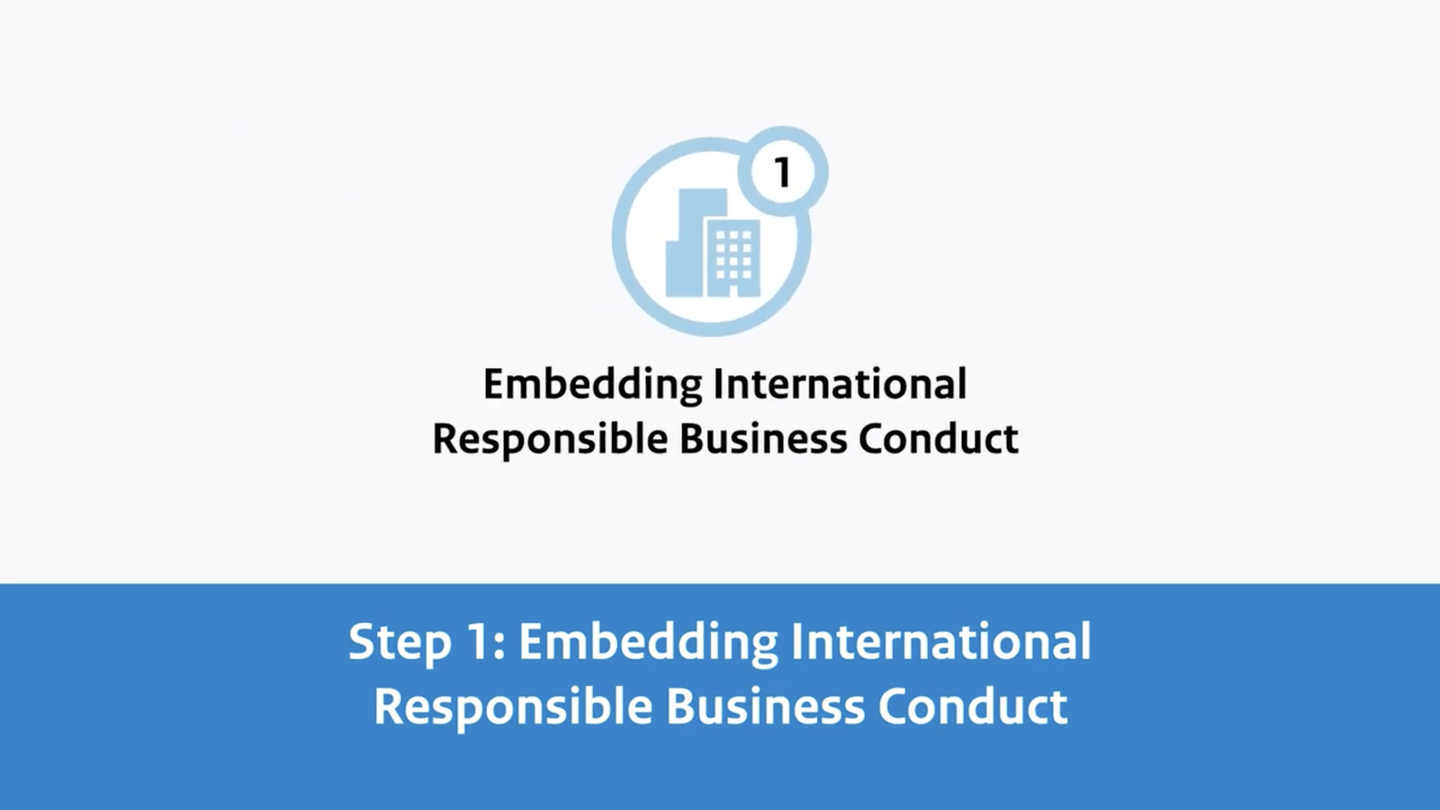Develop clear policies
As we learned in the previous module, various departments and people play their part in implementing due diligence. It is important that everyone knows what they need to do.
Embedding IRBC in the organisation
It starts with clear agreements about embedding IRBC in the organisation. These agreements must be well documented. It works best when agreements are incorporated into existing procedures or policies. Think for instance about procurement and sales procedures, supplier selection procedures, and the code of conduct. Employees are often already familiar with these procedures and ways of working.
It also helps to link due diligence efforts to clear incentives and remuneration. When purchasers are not only judged based on financial targets, they will also be more motivated to discuss other topics with suppliers. When the sales department is approached about orders being frequently changed at the last minute, a practice that has significant consequences in the chain, they will be more inclined to work with the customer to explore other possible solutions. In this way, due diligence becomes the logical way of working.
Prerequisites
To embed due diligence effectively within the organization, several things are important.
Involvement of management
It is incredibly important that the management recognises the importance of IRBC, and the role of due diligence, and actively communicates this to the employees. Additionally, it is up to the management to allocate people and resources to implement the due diligence steps.
Creating support in the organization
To gain support for changes that contribute to due diligence in the company, it is essential to explain why protecting human rights and the environment is crucial. This topic should become a recurring theme in communication with employees. Active communication about the company's commitment to human rights and the environment also leads to engaged employees.
Availability of capacity
Especially for small businesses, capacity is often limited. Specifically in that situation, it becomes crucial to manage existing personnel and resources wisely. Clearly defining roles and responsibilities creates room for the implementation of due diligence.
New Skills
The due diligence process might require new skills. It may sometimes be necessary to train or support employees in their new tasks. For example, support your staff to talk with suppliers or customers about protecting human rights in the supply chain.
